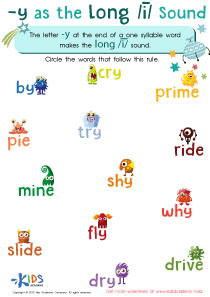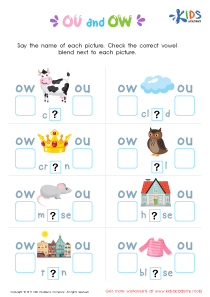Short Vowels Worksheets for Ages 7-9
8 filtered results
-
From - To
Enhance your child's reading and pronunciation skills with our engaging Short Vowels Worksheets for ages 7-9. Tailored to build a strong phonetic foundation, each worksheet focuses on the prominent short vowel sounds a, e, i, o, and u, through fun activities and exercises. Ideal for reinforcing classroom learning or homeschooling, these worksheets support children as they decode words and improve their spelling. With vibrant illustrations and interactive content, learners stay motivated and enjoy their educational journey. Perfect for teachers and parents aiming to boost literacy skills in a supportive and effective manner. Visit now to download and print!
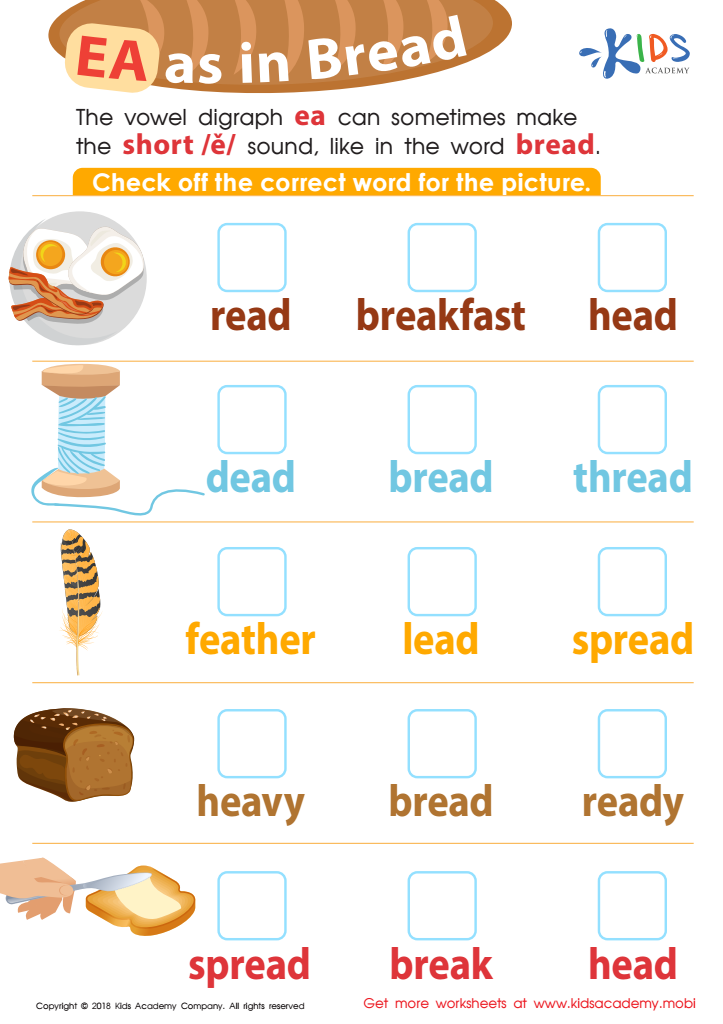

Reading: EA as in Bread Worksheet
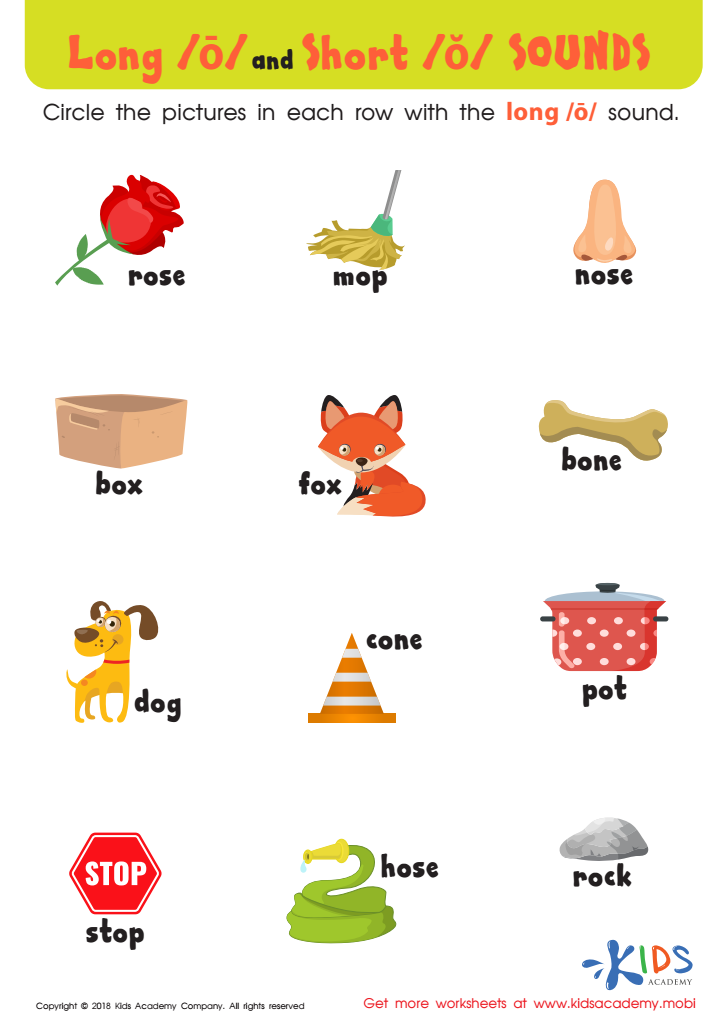

Reading: Long O and Short O Sounds Worksheet


Short Vowel Eggs Worksheet
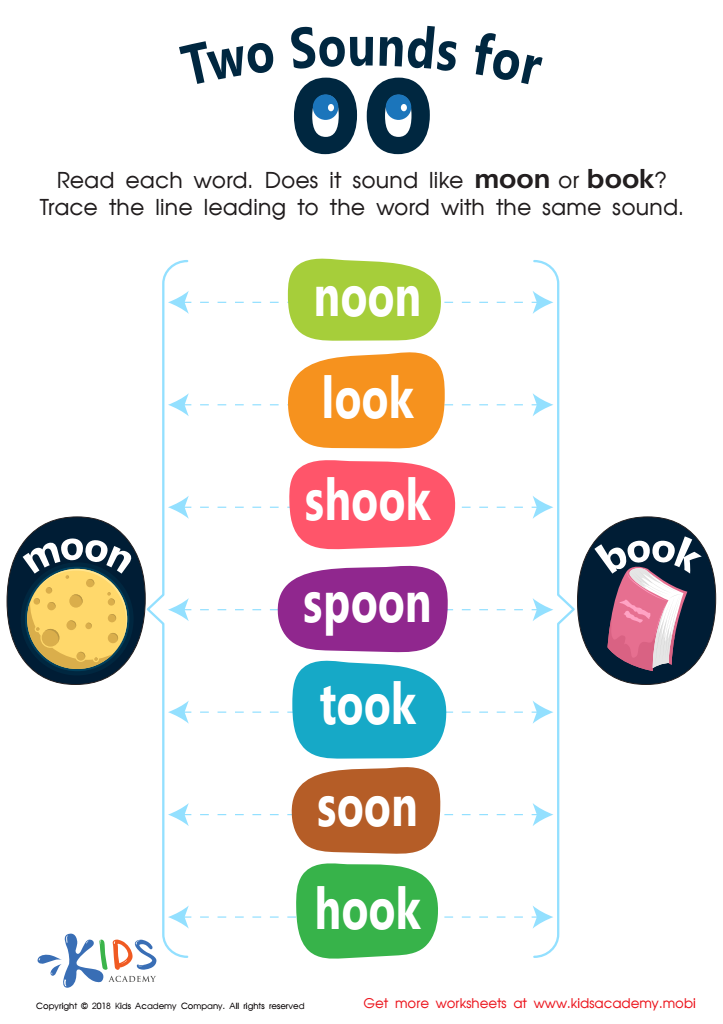

Two Sounds for OO Worksheet


Long and Short Vowel Sentences: Assessment Worksheet
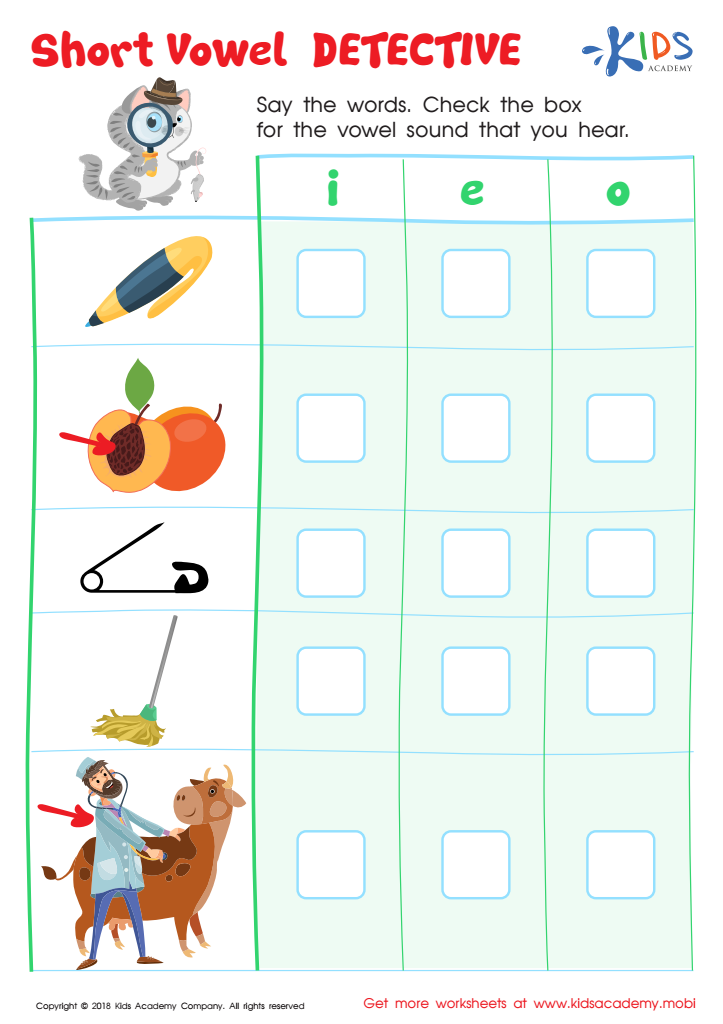

Short Vowel Detective Worksheet


Short Vowels /e/, /i/, and /u/ Worksheet
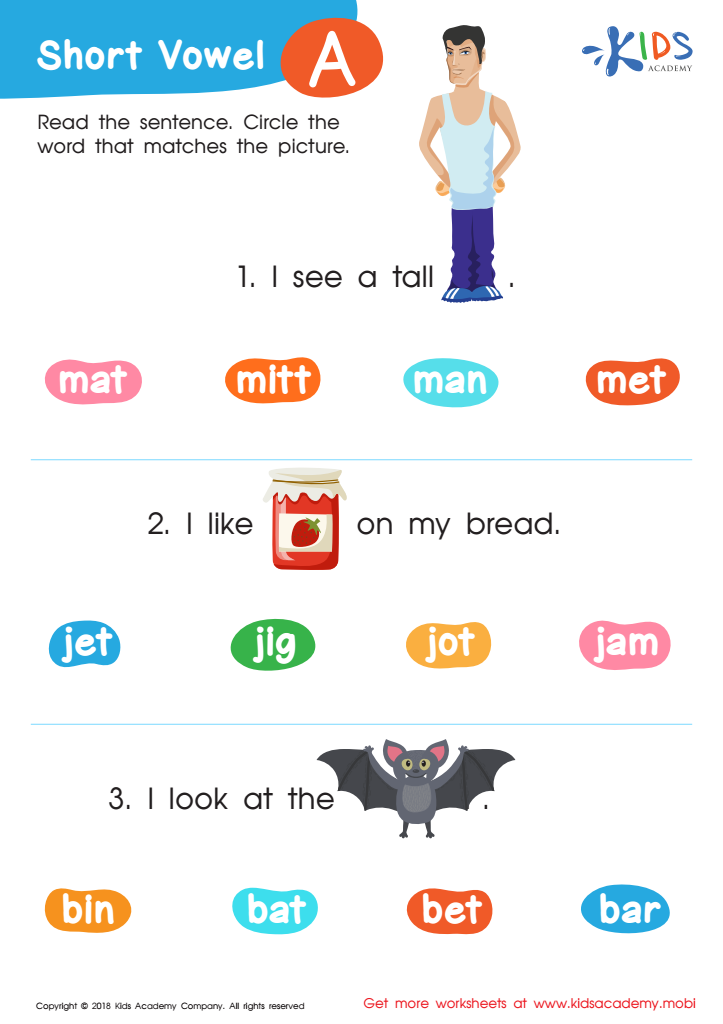

Short Vowel /a/ Worksheet
Parents and teachers should care deeply about teaching short vowels to children ages 7-9 because these sounds are foundational for reading and writing development. At this age, children are transitioning from recognizing letters to decoding words. Understanding short vowels is crucial because they are used frequently in the English language and often appear in simple, common words that form the basis of early reading materials.
Mastery of short vowel sounds enables children to blend and segment words more effectively, which is essential for phonemic awareness—a critical predictor of reading success. For instance, words like "cat," "red," "big," "log," and "sun" all contain short vowels. When children can confidently identify and pronounce these sounds, they are better equipped to tackle more complex words and sentences, fostering greater reading fluency and comprehension.
Moreover, short vowels help with spelling accuracy. When children understand the sound each vowel represents, they can spell words more correctly, aiding in their written communication skills. Early proficiency in these areas builds confidence and sets a strong foundation for future academic achievement. Therefore, focusing on short vowels at this critical learning stage ensures children are prepared for more advanced literacy challenges ahead.

 Assign to the classroom
Assign to the classroom



